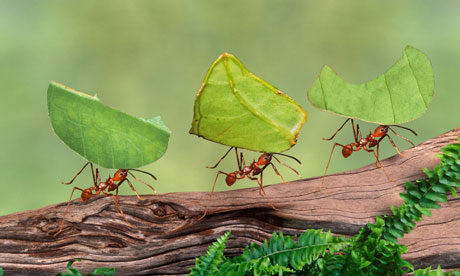
Here we are, almost 7 billion of us, on a planet we have pushed too far in places and whose global tolerance we are testing. The more acutely we perceive its degradation, the more intensely we map, image and quantify its condition. Here we are on Earth like bystanders with mobile phones, recording mishaps and misdeeds, sharing them but not undoing them. The question facing us is whether we can channel the torrents of information we are generating into systems that will enable us – nine billion of us, according to UN projections, by mid-century – to live in peace with the planet and one another.
Tim Flannery is something of a one-man model for this challenge, having contributed to scientific knowledge as a zoologist, communicated its implications as a popular author, and applied it in his work as an environmentalist. He introduces this book as a twin biography of Earth and our species, in which understanding the nature of each yields an optimistic outlook for both. For Flannery, a healthy planet is a "community of virtue", promoting productivity and interdependence, and humankind's imperative is to cultivate its share of planetary virtue. Human progress is impossible, he warns, "if we do not strive to love one another, and to love our planet as much as we love ourselves".
He treads lightly on the Earth, as environmentalists are supposed to do. Despite the immensity of his twin subjects, Flannery does not amass the biblical levels of detail that Richard Fortey presented in The Earth: An Intimate History, or display the encyclopaedic determination that Richard Dawkins brought to his genealogical survey of life on Earth, The Ancestor's Tale. Instead he sketches out a way of seeing humankind and its planet, signposted by figures from the history of evolutionary thought. His central character is Alfred Russel Wallace, the self-taught naturalist who grasped biology's most profound insight, the principle of natural selection, while Charles Darwin was still keeping the idea to himself.
Flannery considers that the reductionist approach to evolution, introduced by Darwin and exemplified by Dawkins, is not sufficient – although he embraces sociobiology and recognises evolution's influence on human nature. It's not sufficient for characters either. In making Wallace iconic, Flannery reduces the complications and contradictions that make Wallace interesting. He repeats the canard that Wallace was working-class, heightening the contrast with the gentleman naturalist Darwin. In fact Wallace's father qualified as a solicitor but failed to provide adequately for his large family: Alfred didn't quite fit into any social niche, which may have made him more open to unorthodox ideas. Nor does he fit the role Flannery casts him in, as the holistic thinker who saw cooperation where Darwin saw ruthless competition. It was Wallace who urged Darwin to use the phrase "survival of the fittest" instead of "natural selection", and who claimed to be more Darwinian than Darwin himself.
Flannery aligns Wallace with James Lovelock, originator of the Gaia hypothesis, which proposes that Earth seeks to optimise conditions for life upon it. That does not necessarily imply a place for human life, but Flannery is drawn to the idea that Earth is a super-organism for which humankind could provide a brain and nervous system. This is the ultimate vision of humanity as nature's steward, at once both an organ of the great natural body and its intelligent, purposeful overseer; part of nature, but also above it.
His concept of a super-organism is expansive, encompassing ant colonies and human civilisations, and correspondingly loose. The term implies a degree of integration among individuals comparable to that among cells within individuals. It requires that conflicts of interest are removed or suppressed. Among ants this has been achieved by the natural selection of a caste system: no agitator could argue that it was in the workers' objective interests, as Marxists liked to put it, to rise up against their queen. Human societies, however, are not super-organisms but constantly shifting coalitions of coalitions, in which interests are negotiated and balanced. That is much of what makes us human – and what makes the challenge of climate change "the single most difficult political transaction in the history of mankind", in the words of the US politician Richard Gephardt. We need to build super-coalitions: super-organisms are not in our nature.
Even when it fails to persuade, however, Flannery's writing never fails to please. His authorial voice is always engaging, and he has an eye for memorable details that help ordinary readers make models in their minds of how nature works, such as that plants would use up the atmosphere's carbon dioxide in 12 years if it were not replenished, or that ozone is blue. His limitation is that he is too gentle with his readers. Neo-Darwinists such as Bill Hamilton, another of his heroes, have appreciated the evolution of cooperation with unrivalled depth precisely because they have gazed unflinchingly at the competition from which it arose.
Flannery's dream of a highly technological human super-organism was actually Hamilton's worst nightmare: he feared technology would destroy humankind's individuality and allow its gene pool to degenerate. Wallace, however, would have recognised Flannery as a kindred spirit. He suggested that we are literally at the centre of the universe and alone embody its Creator's purpose. Flannery doesn't go quite that far, but when he closes by invoking "Wallace's vision of perfecting the human spirit in the vastness of the Universe", it sounds as though that's where he's heading.

